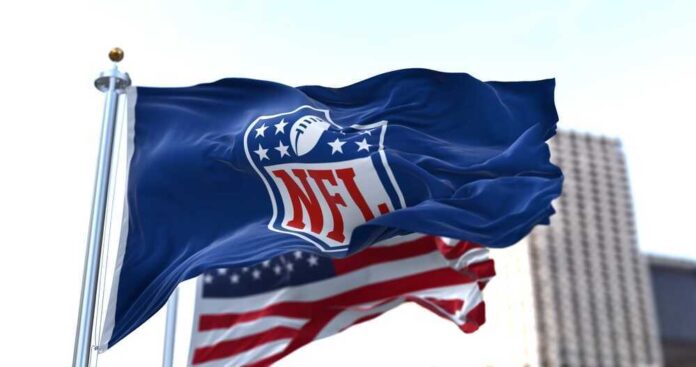
Rejecting proposed rule changes that would have taken away a key offensive weapon, NFL owners threw a flag on attempts to ban the highly effective “tush push” play.
The Philadelphia Eagles, who mastered the short-yardage strategy under quarterback Jalen Hurts, can now continue their dominant use of the controversial play despite safety concerns raised by the league’s competition committee.
NFL team owners voted 22-10 against banning the quarterback push play during meetings in Minnesota, falling short of the 24 votes needed to implement the rule change.
The decision represents a decisive victory for teams like the Eagles, who have perfected the controversial strategy of having teammates push the quarterback forward in short-yardage situations.
The Green Bay Packers had proposed the ban, citing concerns about “player safety” and “pace of play.”
Their official proposal would have prohibited “an offensive player from pushing a teammate who was lined up directly behind the snapper and receives the snap, immediately at the snap.”
If the rule had passed, a penalty would have been assessed for violations.
In addition, the Packers’ failed attempt to change the rules follows a season where their defense, like many others, struggled to stop the Eagles’ nearly unstoppable short-yardage play.
Rather than adapting its defensive strategy, Green Bay attempted to legislate away its problem through rule changes—a move that fortunately failed to gain sufficient traction among owners.
Green Bay Packers general manager Brian Gutekunst told reporters in March that he supported banning the play, even though his team had run a version of it in the past.
“I think this is something that needs to be discussed and we need to be proactive about it rather than reactive,” he said.
While Gutekunst pushed for the ban, Eagles coach Nick Sirianni defended his team’s success with the play, arguing that it is not an automatic win but rather the result of extensive practice and preparation.
“It’s a little insulting to say we’re good at it, so it’s automatic. We work really hard at it,” Sirianni stated.
This underscores how his team earned its advantage through hard work rather than simply exploiting a loophole.
The Eagles even brought former center Jason Kelce to the meetings to clarify the play’s execution and advocate for keeping it legal.
Following the vote, the team posted a simple but clear message on social media: “Push on,” celebrating the victory for football tradition over unnecessary regulation.
Notably, NFL Competition Committee chair Rich McKay acknowledged that no actual data suggested the play was causing injuries, undermining one of the primary arguments for banning it.
This revelation exposes how the proposed rule change was more about competitive balance than legitimate safety concerns, with teams unable to stop the play seeking to remove it entirely.
Meanwhile, the vote preserves the integrity of the game by allowing teams to continue using strength, coordination, and execution rather than having effective strategies banned simply because they are difficult to defend.
With the “tush push” remaining legal through at least the 2025 season, teams will need to develop better defensive tactics rather than relying on rule changes to solve their problems.
This decision represents a victory for football traditionalists who believe the game’s physical nature should be preserved rather than constantly watered down with new restrictions.
As teams across the league now work to either perfect or defend against the play, fans can look forward to more exciting short-yardage battles instead of watching another effective football strategy legislated out of existence.



















